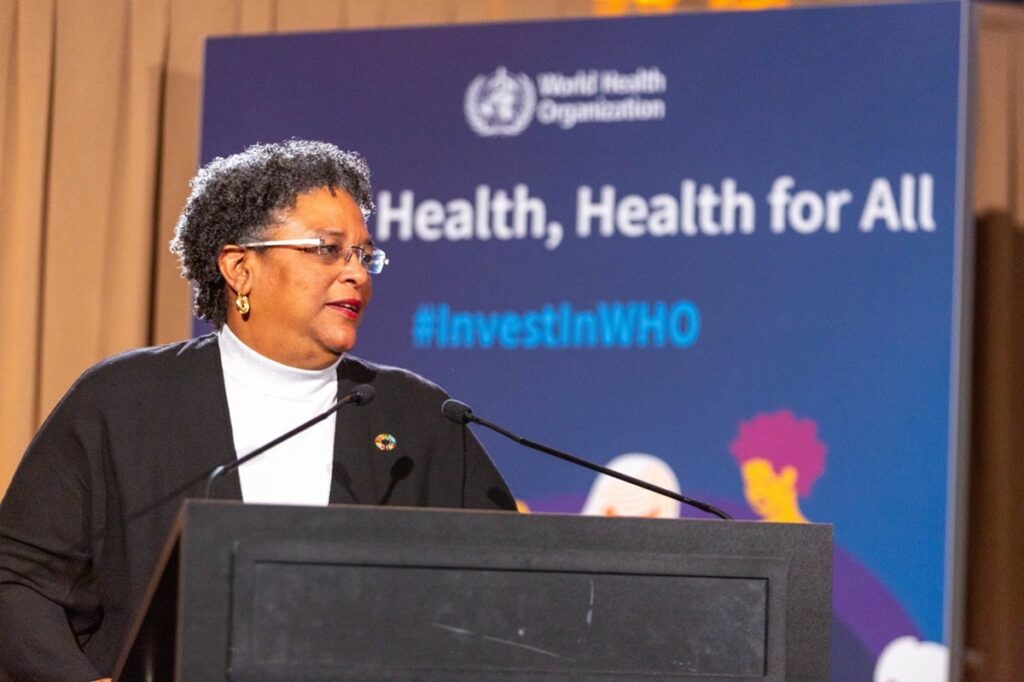The World Health Organization (WHO) launched its first investment round on Sunday as part of a broader plan to transform how the agency is funded in an era of climate change, mass migration, pandemic threats, an ageing global population and geopolitical turmoil.
The announcement, made on the eve of the 77th World Health Assembly, marks the start of a year-long series of country-coordinated initiatives and events in which Member States and other donors will be invited to fund WHO's 2025-2028 strategy and demonstrate a high level of political commitment to WHO and global health.
The investment round is expected to culminate in a major pledging event hosted by Brazil on the sidelines of the G20 summit in November.
“This is about ensuring WHO is adequately funded and improving the quality of the funding we receive. Much of the funding we receive is unpredictable, reactive and rigidly defined,” Director-General Tedros Adhanom Ghebreyesus said at the opening of a high-level event on the eve of the Health Assembly. “The investment round aims to change that by creating funding that is more flexible, predictable and resilient.”
WHO's third investment proposal, to be presented at the Health Assembly on Tuesday 28 May, estimates that fully funding the strategy, its 14th General Plan of Action (GPW14), could save 40 million lives between 2025 and 2028.
High level of support for your investment round
At a high-level event on Sunday, the Brazilian government announced that as the country's G20 presidency, it will host high-level events, including a summit in November, to support the investment round and invite countries to join the effort.
“Global problems require global solutions, and no other organization is in a better position to offer us the opportunity to find global solutions,” Brazil's Health Minister Nixia Trindade said in a video address. “We will use the convening power of the G20 to unite our efforts to make this investment round a success.”
Qatar's Minister of Health, Hanan Mohammed Al Kuwari, announced that the country will contribute US$4 million in fully flexible funds to the investment round, with further contributions to come.
“Healthcare is a fundamental human right and we must continue to invest in the World Health Organization to protect health. Unity is the key to our success,” said Dr. Mohammed Al Kuwari.
France, Germany and Norway have announced that they will co-host the investment round.
“WHO must be the guardian of scientific rigor, the whistleblower and above all the orchestrator of the action of all those involved in global health, in Geneva and its member states,” said Frédéric Valletout, France's minister of state and special envoy for health and prevention.
“As member states, we need more predictable, more flexible and sufficient funding for the WHO,” said Norwegian Health Minister Jan Christian Vestre. “Norway is committed to co-hosting the investment round, which will be an important step in ensuring more sustainable funding for the WHO.”
Further statements of support for the investment round came from Dr Gabriel Leon, on behalf of the Charity Association, and former UK Prime Minister Gordon Brown, who is WHO's Ambassador for Global Health Financing.
Barbados Prime Minister Mia Amor Mottley accepted the Global Health Leadership Award for Lifetime Achievement from WHO Director-General Dr. Tedros Adhanom Ghebreyesus and issued a statement endorsing the WHO Investment Round and noting its importance for small island developing states.
“We live in a world where we should know better, and I say that at the start of this investment round primarily because what's being asked for is a fraction of where other places the money is being spent,” Mottley said.
As part of Sunday's event, prizes were awarded to five prize winners.Number A special edition of WHO's 'Health for All' Film Festival, presented by Indian actress, filmmaker, social activist and renowned international film festival jury member Nandita Das.
The launch event featured performances by internationally acclaimed Egyptian opera singer Farah El Dibany and French-American pianist Jeff Cohen.
A reception following the event was hosted by Germany at WHO Headquarters and was inaugurated by Federal Minister of Health Karl Lauterbach, and also featured a speech by basketball star and childhood obesity prevention champion Pau Gasol, as well as a performance by choreographer, dancer, actor, UN development advocate and philanthropist Shelley Silver and her young dance troupe.
Matching WHO funding with its obligations
The WHO Executive Board approved the investment round in January, noting that funding was not keeping up with the WHO's mission to promote health, prevent disease, expand access to health care and coordinate the global response to the increasing number of health emergencies caused by war, disease outbreaks and natural disasters.
By 2022-23, Member States' assessed contributions (accession fees) will cover only 13% of WHO's budget, forcing the Organization to rely on voluntary, often designated and unpredictable contributions to fund its operations, creating uncertainty and inefficiencies across the Organization and leaving areas where authorized activities are not funded.
The launch of the Investment Round is one of the key recommendations put forward by the Member State-led WHO Sustainable Financing Working Group and endorsed by Member States to make WHO a predictable, sustainable and flexible-financed organization. Member States also approved an increase in levy contributions, on a path to provide 50 percent of WHO's core budget by 2030. With the Investment Round, WHO aims to mobilize new contributions from WHO Member States that are not yet self-contributing and to broaden its donor base by leveraging new private sector donors through the WHO Foundation.


